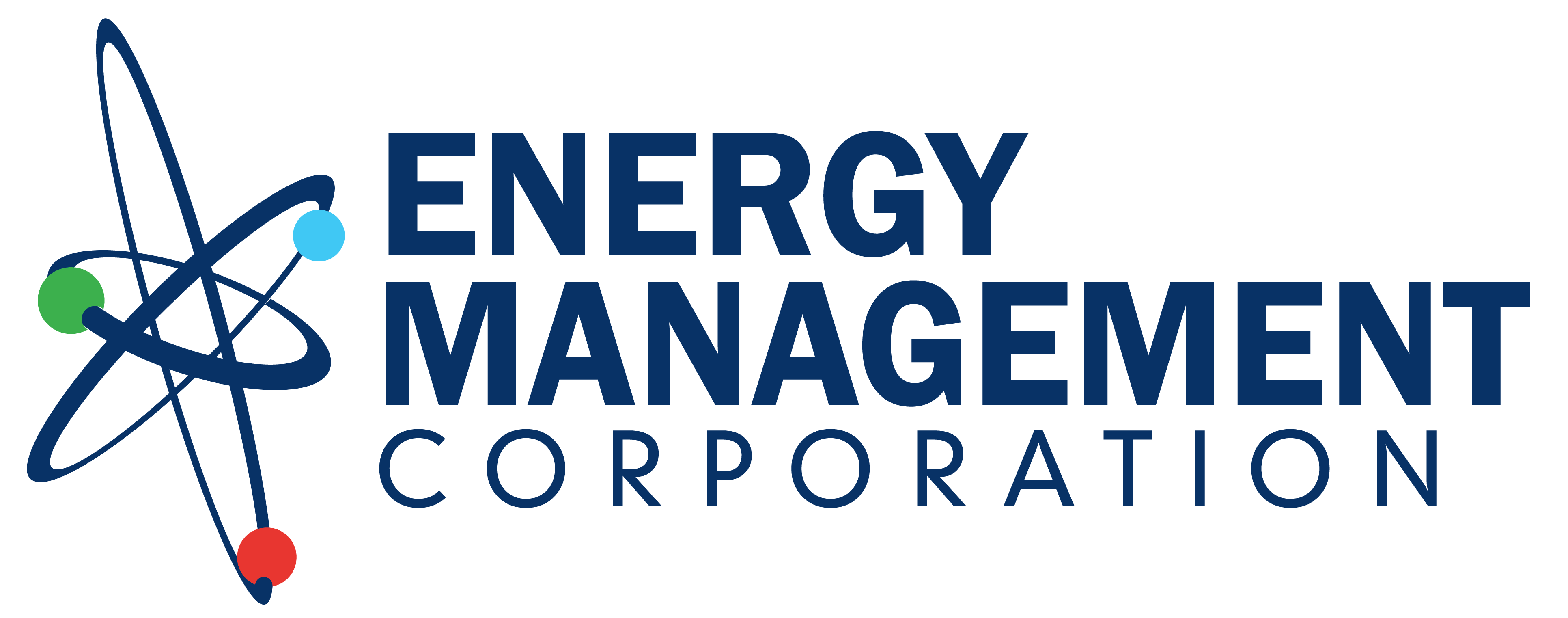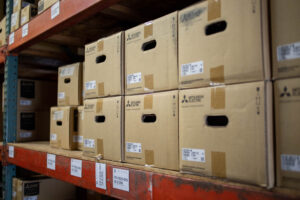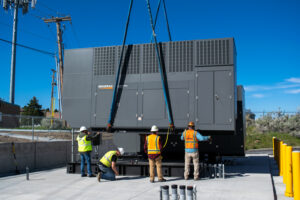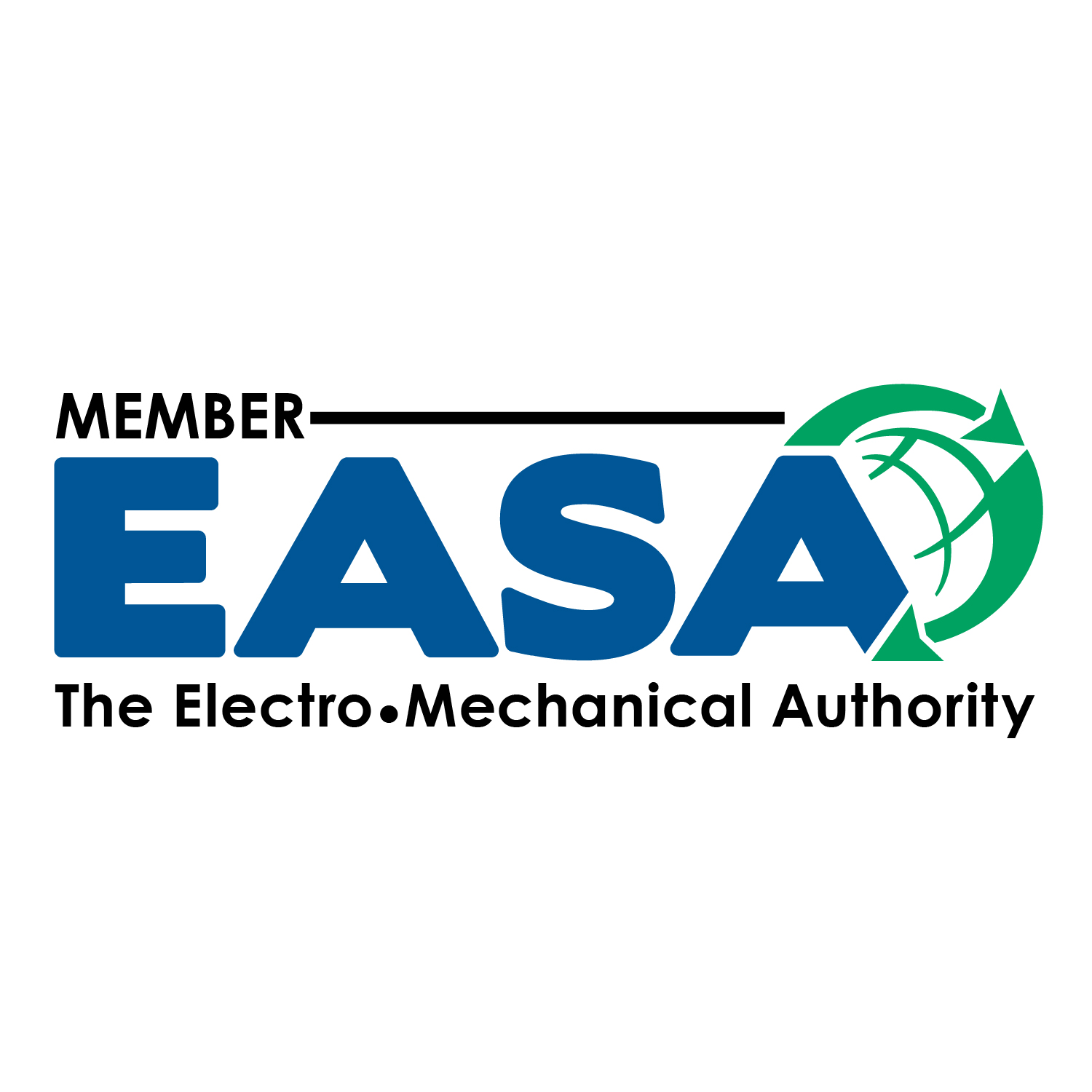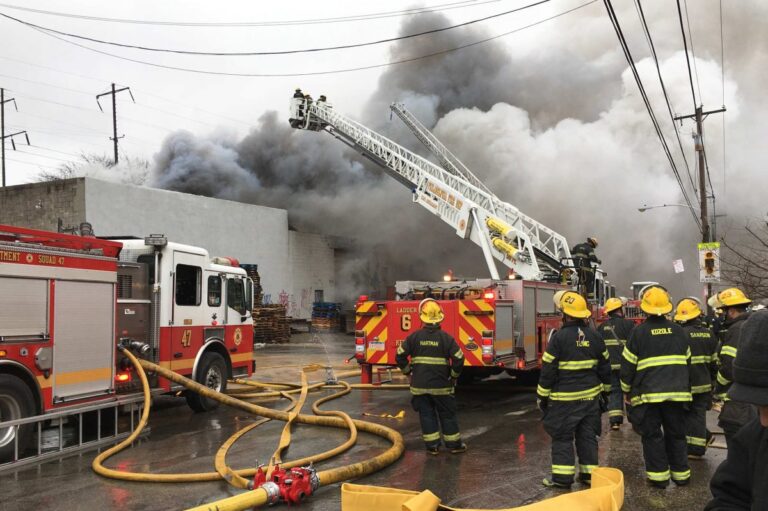
Learning From Disasters and Prevent Your Generator Causing a Fire
Could you imagine owning a data center that catches fire from a generator during a utility power outage and cause irreparable damage to your customer’s servers? How much more painful would this news be if you discovered the generator that caught fire recently underwent routine maintenance and inspection? That is the real-life nightmare of WebNX, a server hosting firm that operates a 100,000 square foot data center in Ogden, Utah. In addition to the fire, the responding fire department had to cut all power to the building, creating server outages for the rest of their customers. To add even more insult to injury, the fire suppression system that kicked on caused water damage to a number of servers possibly leading to permanent data loss. WebNX certainly isn’t the first company to have a generator fire threaten their operations. While details surrounding the exact circumstances surrounding the fire aren’t readily available and EMC was not involved in this incident, it got us thinking that it is never too early to learn from this disaster, so we put together some of our thoughts to help you prevent your own catastrophic generator fire.
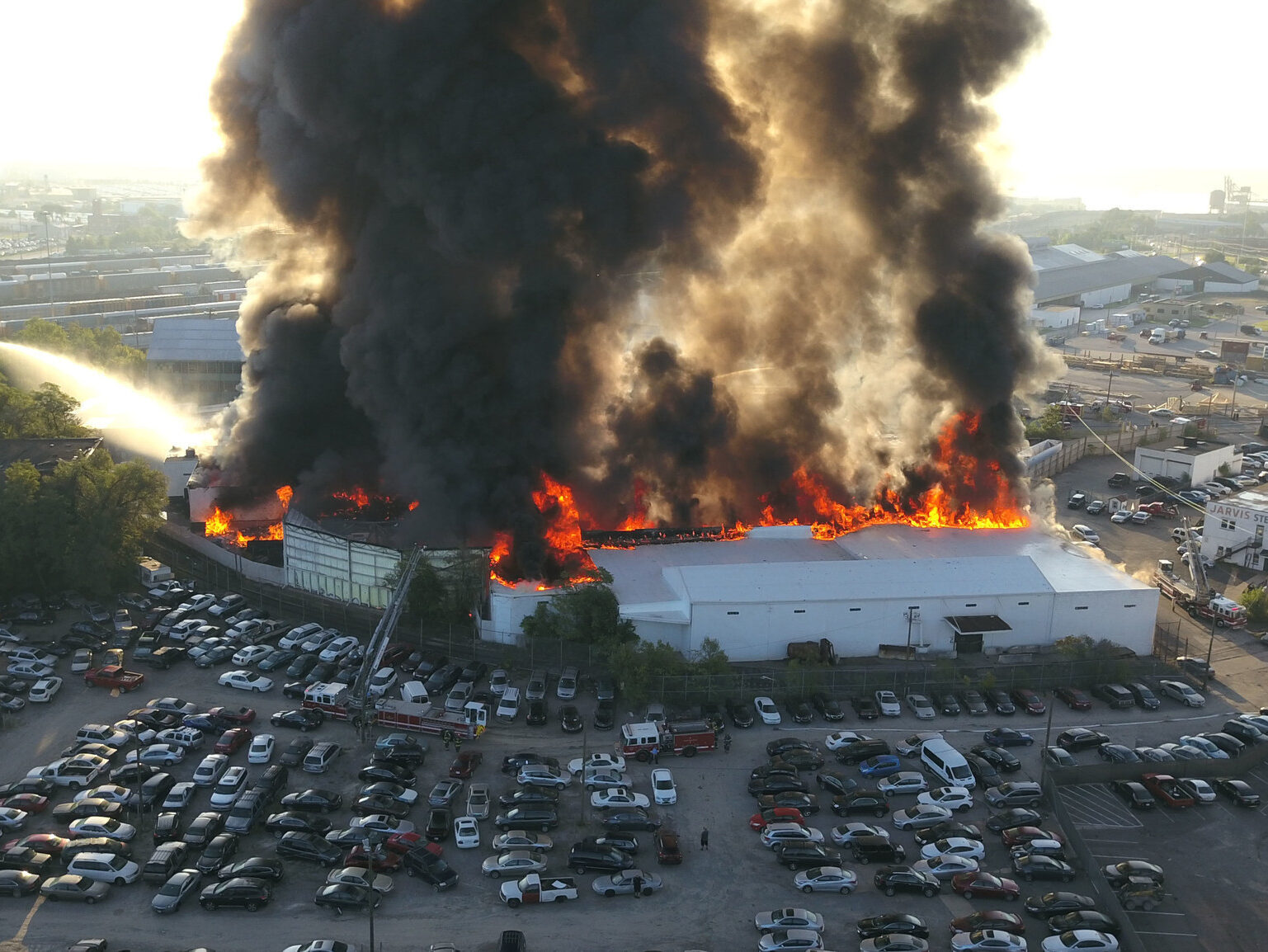
Periodic Maintenance
Annual or even semiannual maintenance and inspection of your generator is extremely important to make sure that your gen is running in tip top shape and won’t cause issues down the line. If you have an experienced technician lay eyes on your generator at least twice a year, you can prevent a lot of possible problems. Parts such as brushes, armature, and commutators can start to spark without proper maintenance. These sparks can ignite any gasoline fumes or spills, which in turn can cause the generator to catch on fire, and the gas tank could then cause an explosion.
Another reason periodic maintenance and inspection is important is if parts begin to break down, broken pieces can cause the unit to short circuit and catch on fire. If your maintenance is performed by a qualified generator technician, they are able to pick up on future problems that may arise, and fix them before catastrophic failure occurs.
Part of periodic maintenance for diesel generators is load banking. Load banking is the process of hooking up an artificial load to verify the gensets capabilities, opposed to just starting it up. By allowing the generator to run with a full load for a specified period of time, it allows your generator to get up to full operating temperature and allow any buildup of carbon deposits in the exhaust system that may have built up over time. These carbon deposits, if left to build up for too long, can become a fire hazard.
Fuel
There are two main types of fuel sources for standby generators, diesel and natural gas. These two different types of fuel require different types of inspection and care.
- Diesel: Be sure that you are constantly inspecting fuel lines and fuel filters for any possible leaks. Any leak, no matter how big or small should be repaired as soon as possible. Another area of the fuel system to scrutinize is the fuel tank. Be sure there is no rusting, cracking, leaking, etc. Even the smallest leaks can lead to a fire hazard.
When fueling diesel generators, make sure that the tank is not over filled and no fuel has been spilled in the process. You should only fill generators to 80-85% of their fuel capacity. That way if the fuel was to expand, it won’t expand and leak out of the tank.
Before fueling your generator, turn the generator off for at least ten minutes and allow it to cool down before adding fuel. And fuel spilled on hot engine parts may ignite.
- Natural Gas: Inspect your generator for any gas leaks often. Smell is the easiest way to identify any leaks. If you identify a leak, shut off the fuel valve until leakage is identified and fixed. Make sure the fuel regulator is adjusted to the proper manufacturer recommended setting so you are not giving the generator excessive fuel that is hanging around and not being consumed.
Location
Your generator should be installed following NFPA 110 standards. These standards are set forth to ensure the safety of all those working or living near your generator. Your generator should be installed in its own room or outdoor area, away from any other flammable appliances. NFPA 110 chapter 7 references the fact that a generator, if kept indoors, must be installed in a room with a two-hour fire rating.
Any flammable items should be kept at least 10 feet away from your generator. Certain parts of the generator can become very hot while running, and if any flammable materials touch them, a fire can easily erupt.
A couple areas that can also quickly become a fire hazard are the exhaust system and radiator. If the exhaust or radiator is blocked, air flow cannot circulate effectively and heat can build to the point of explosion.
Make sure your generator is properly shielded from dust and debris. A qualified tech can help to ensure that your generator is properly sealed to keep any debris from blowing into the generator, or any water for leaking in and damaging electrical components that could lead to sparking.
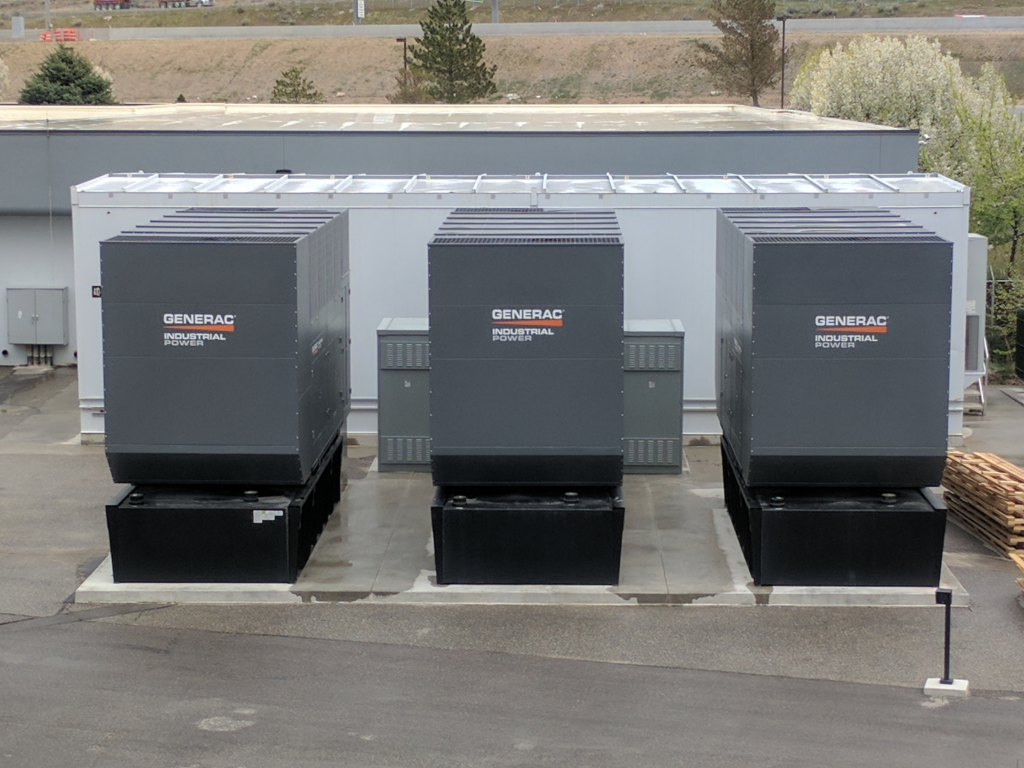
Other Safety Measures
It is important to have a fire suppression system set up in the same area as your generator. NFPA 110 has specific guidelines you should follow to have an effective system for your type of generator system.
Having a fire extinguisher on hand near your generator enclosure in case of a small fire possibly stumbled upon by a passerby is a great idea to stop a small fire before it spreads.
Make sure your generator is installed by a qualified technician that does this sort of thing all the time, then have it inspected by your authority having jurisdiction (AHJ) to ensure proper installation.
Verify that your generator has been approved by a nationally recognized testing agency. Purchasing a UL listed generator is one of the best ways to verify that your generator will run as safely as possible. Follow all manufacturer recommendations. Generator manufacturers are experts in the way their specific machines run and are expected to behave. Following the guidelines set forth by your generator’s manufacturer is your best bet in keeping your generator operating within its safety parameters.
Need a Qualified Technician to Inspect Your Generator?
Call 800-595-5315 Or Connect With Our Expert Technicians Here:
Other Articles
- Critical Spare Planning
- Where Do I Start On My Generator Installation?
- How can Las Vegas heat lead to generator failures?
President
Paul is the current president of Energy Management with over a decade of electric motor, variable frequency drive, and generator experience in product application and industrial plant maintenance and service. He helped develop our ecommerce division with the current VP of Sales Luke Lancaster. Besides his main effort of growing the company, Paul occasionally writes for our blog and shares his extensive knowledge on products and applications.
